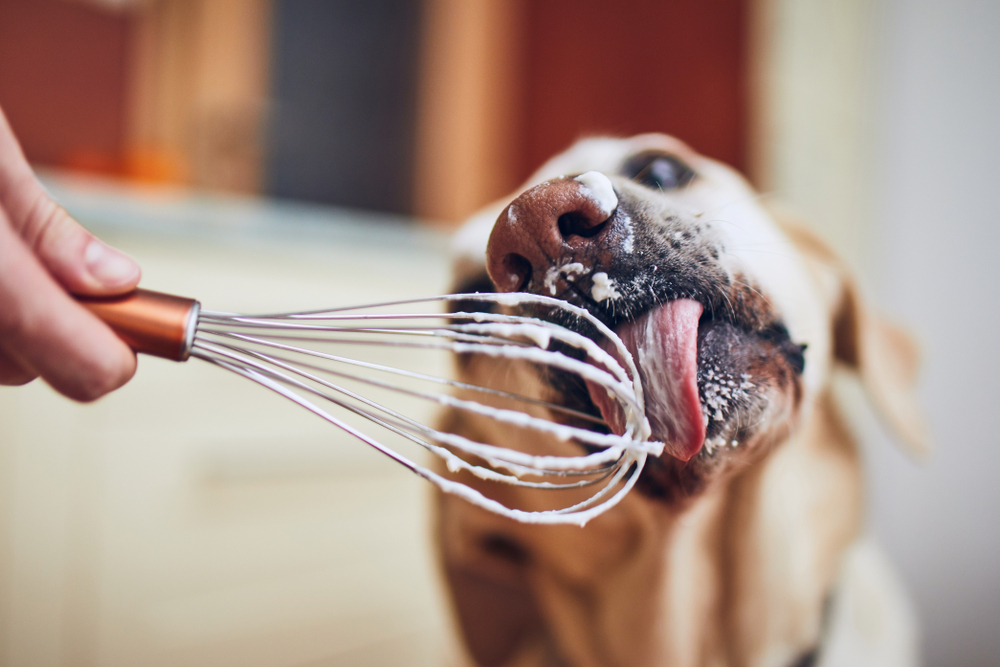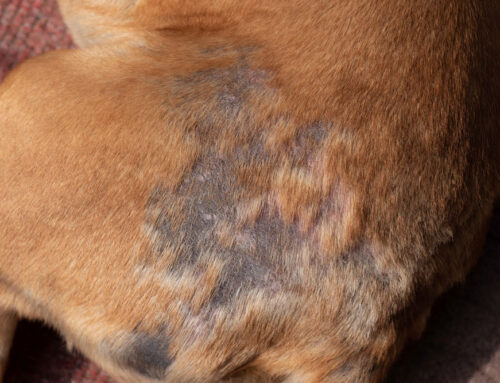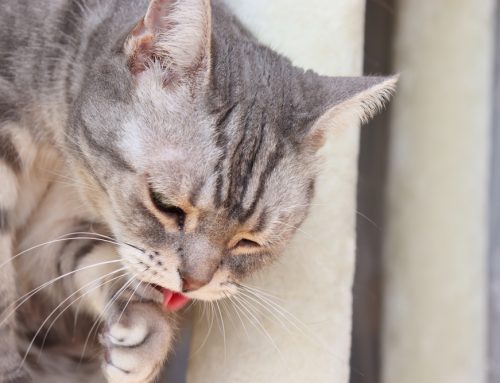If you’re trying to cut sugar or calories from your diet, you may have switched to xylitol as a sweetener for your coffee and baked goods. However, this sweet substance may seem like a smart switch for you, but can be hazardous to your dog’s health. Xylitol toxicity in dogs is becoming more common as consumers want sugar-free products, and xylitol is a popular sweetener alternative. However, many products, in addition to food, also contain xylitol, making this substance more dangerous.
Where can xylitol be found?
Xylitol is a popular ingredient not only in sugar-free gum and candy, but also in many non-food products. Some of the most common products that contain xylitol can include:
- Peanut butter
- Baked goods
- Sunscreen
- Medications
- Toothpaste
- Mouthwash
- Chewable vitamins and supplements
- Cosmetics
- Deodorants
- Hair-care products
So, although xylitol is typically used as a sugar-free sweetener, many products that unattended pets like to chew also contain this dangerous substance. Peanut butter, which is often used to administer pills, or as a long-lasting treat stuffed into a Kong, may also contain xylitol, so always check your peanut butter ingredient list before feeding your dog. In fact, you should ensure that all hazardous items—non-food items included—are placed well out of paws’ reach.
What side effects does xylitol ingestion cause in dogs?
If your dog ingests xylitol, whether by sniffing out a pack of sugar-free gum in your purse, or chewing on a toothpaste tube, the side effects can be fatal. Most commonly, xylitol ingestion results in a rapid, severe drop in blood sugar (i.e., hypoglycemia) that can be seen in 30 minutes, or may not be visible for up to 12 to 18 hours, if the xylitol is in a substrate that slows absorption, such as some gum products. Signs may include:
- Lethargy
- Trembling
- Vomiting
- Loss of appetite
- Loss of coordination
- Disorientation
- Dilated pupils
- Seizures
- Coma
In some cases, dogs who ingest xylitol will suffer from liver injury. Signs may not occur until 24 to 48 hours after ingestion, and can include:
- Depression
- Vomiting
- Jaundice
- Clotting issues
Not all dogs who develop liver damage from eating xylitol also develop hypoglycemia, so close monitoring for both conditions is necessary to provide the proper treatment.
If your pet ingests xylitol, seek medical attention immediately—do not wait for signs to develop. If it is after hours, take your pet to the nearest veterinary emergency hospital for treatment and monitoring.
How is xylitol toxicity diagnosed in dogs?
You may not realize your dog has eaten a xylitol-containing product until clinical signs develop. At that point, you may still not know your pet has ingested xylitol, unless you find a chewed package. However, prompt treatment is crucial for the best prognosis in xylitol toxicity cases.
Xylitol toxicity diagnosis is generally straightforward, if we know your pet ingested xylitol. Otherwise, blood work and additional diagnostic testing will help rule out other causes of hypoglycemia or liver injury.
How is xylitol toxicity treated in dogs?

If you find your dog eating a xylitol-containing product, inducing them to vomit may seem like a good idea, but instead, you must rush your pet to Tidmore Veterinary Hospital for urgent treatment and monitoring because of the rapid hypoglycemia onset. Hypoglycemia can persist for up to 24 hours, but can be managed with intravenous dextrose infusions. If hypoglycemia is treated promptly and your dog has no complications, they should recover without incident.
Our team will also monitor your dog’s liver function, and we may prescribe liver-protecting medications. Mild liver damage generally resolves after a few days, but if the damage is severe, survival is less likely, despite aggressive treatment.
Can cats suffer from xylitol toxicity?
While cats are typically more sensitive than dogs to numerous medications, plants, and other substances, no cats have been reported to develop hypoglycemia or liver damage following xylitol ingestion. Dogs are the only domestic species in which xylitol toxicity has been reported. However, many non-food products that contain xylitol can contain other hazardous ingredients, so keep all these items inaccessible to your cat and dog.
If you suspect your dog has eaten a sugar-free item containing xylitol, don’t wait—contact our Tidmore Veterinary Hospital team immediately for help.








Leave A Comment